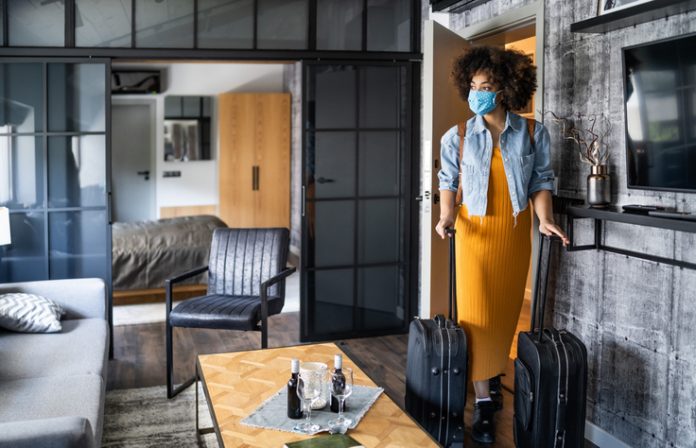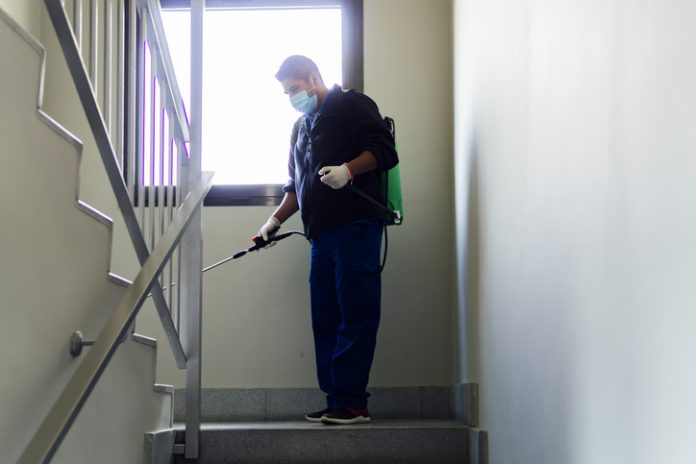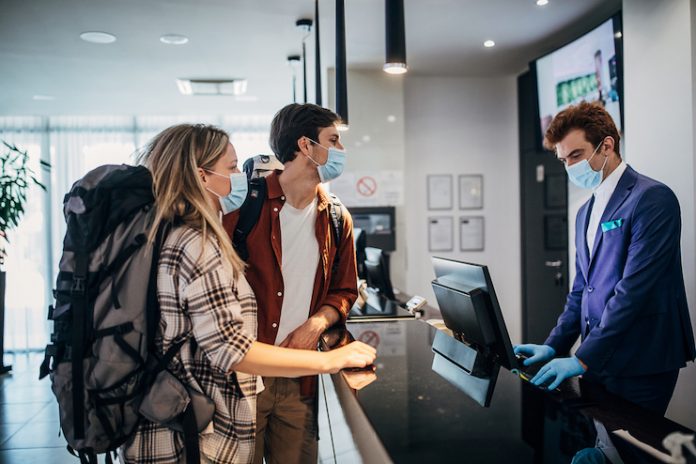Increased privacy and flexibility are two of the stand-out trends that data and analytics company GlobalData recently noted will shape the lodging industry in 2021, alongside longer stays, improved hygiene procedures, and more no-touch technology.
“Hotels that cannot provide more secluded spots or offer increased booking flexibility could be at risk of losing out even further in 2021,” said Ralph Hollister, travel and tourism analyst, GlobalData. “Rate plans to accommodate longer stays need to be offered, whilst the marketing of no-touch technology and increased hygiene procedures needs to be increasingly visible.”
1Longer Stays

Hollister noted that travelers will continue to be impacted by COVID-19 and will be looking to take fewer trips in 2021. “Those that do travel are expected to also stay for longer to grab what they can when they can. Uncertainty is strife and it may lead to people going ‘all out’ on one big trip, rather than risking several smaller ones that could be canceled,” Hollister explained.
Lodging providers should accommodate this need for longer stays—which is expected to be “particularly popular with digital nomads, students, and business travelers”—by creating rate plans that offer increased value to potential guests, Hollister added. “This is one method already being explored by major players such as Booking.com, which introduced two new rate plans to satisfy this need. The weekly rate plan requires a minimum length of stay of seven nights, and for the monthly rate plan, a length of stay of 28 nights is the minimum requirement.”
2Increased Privacy

The need for more private forms of accommodation has surged during the pandemic; a survey by GlobalData that was conducted in early December 2020 found that 79 percent of global respondents are still “quite concerned” or “extremely concerned” about the outbreak.
“The likes of Vrbo and Airbnb can offer an abundance of accommodation types in more secluded areas, while many major hotels are stuck with city-center properties,” Hollister noted. “In the short term, travelers may feel there is little sense in risking a city-center location when the main attractions are closed. Demand for city breaks will slowly return in the coming years as the dust settles, but domestic breaks in rural locations are likely to be the preference and return at a much quicker rate.”
3Improved Hygiene Procedures

A GlobalData survey conducted in early December found that 59 percent of global respondents are “quite concerned” or “extremely concerned” about their physical fitness and health during COVID-19. In response, lodging providers have improved hygiene and sanitation procedures. However, it is not enough to just have these in place—they have also had to effectively market these changes to gain customer confidence.
“All major players in the lodging industry have been implementing and showcasing their new hygiene procedures this year,” Hollister added. “These procedures will continue to be refined in 2021 as the pandemic continues.”
4More No-Touch Technology

Technology in lodging that reduces customer contact with frequently touched surfaces and other humans is expected to be positively received in the year ahead; 60 percent of global respondents to a GlobalData survey conducted in early December reported that they are “somewhat,” “often,” or “always” influenced by how digitally advanced or “smart” a service is.
“In 2021, hotels will increase their adoption of technology that reduces the number of touchpoints. Abilities such as online check-ins and check-outs, mobile keys, and room settings controlled by Internet of Things (IoT) technology will become much more commonplace,” Hollister said. “Using IoT to control room settings also allows hotels to gather more data on guests, creating a more personalized experience when they next return.”
5Enhanced Flexibility

Travelers faced significant uncertainty in 2020, which has deterred them from booking accommodation in case they cannot later get a refund. According to the GlobalData survey conducted in early December, 56 percent of global respondents are “quite concerned” or “extremely concerned” about domestic travel restrictions, and 52 percent echo the same sentiment for international travel.
Hollister noted, “Having a flexible cancelation policy on a hotel website will be vital in ensuring direct bookings, and these relaxed policies will continue in 2021.”












